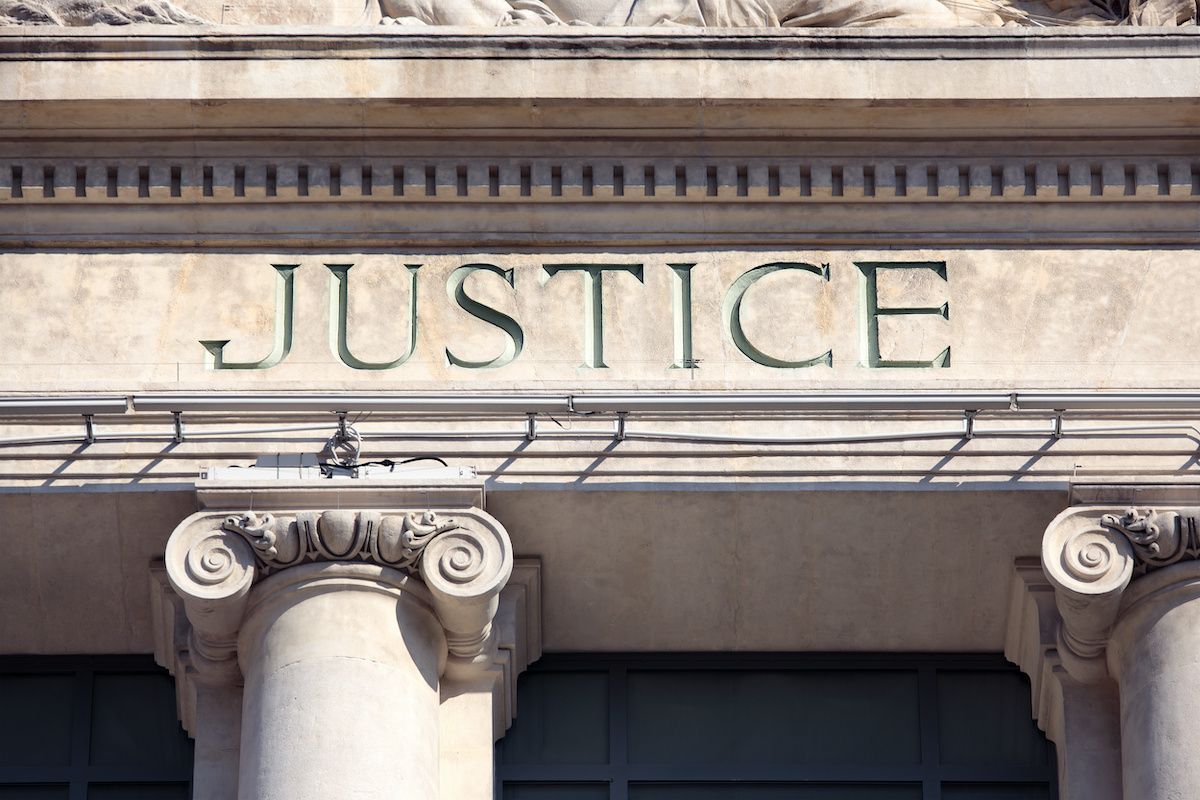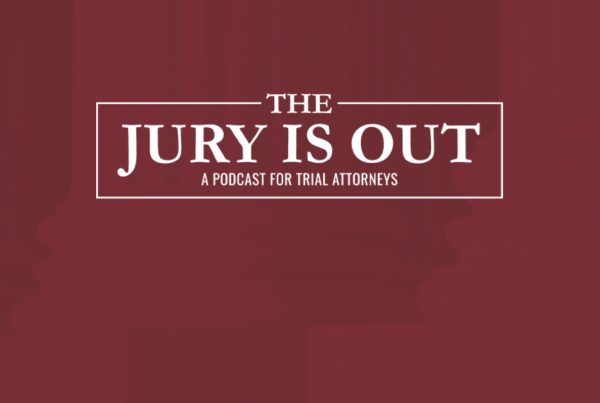Tony Simon discussed his broad-based business trial law practice with Erich Vieth during two episodes of The Jury is Out, Episodes 226 and 229. The conversations include a detailed discussion of Tony’s approach to intellectual property litigation, as well as anti-trust, legal malpractice and qui tam actions.
During the podcasts, Tony described his typical client:
I think what I tend to do is most of my cases are the David and Goliath scenario. They are that little guy, the little gal, who has an invention or a small company, and has a trademark and the big company comes along and wants to take the intellectual property away. The reason I go up against those companies is that those companies think they can do whatever they want because they know they’ve got lots of money and lots of lawyers, and it’s going to be difficult for their opponent to hire somebody who’s going to be willing to take their case or they can’t afford an attorney.
When Tony joined his brother John’s law firm in 2003, he became one of a select few business law attorneys to offer contingent fees to his clients. Since then, he has handled a wide variety of cases, including intellectual property, qui tam actions, legal malpractice, antitrust and intellectual property litigation. He decided to offer most of his work as a trial attorney on a contingent fee:
The only thing I really won’t do is hourly work. When I came over here, part of the reason I wanted to come over was I did have clients who couldn’t afford to hire me to had substantive good cases, but from a standpoint of budget and for their business, it just wasn’t worthwhile moving forward. So one of the things I decided when I came over here, I took John’s model, which was personal injury and product liability cases on a contingent fee. And I applied it to commercial litigation and IP litigation, IP, intellectual property litigation. And one of the things I always try to insist on is that my interests and my client’s interests are fully aligned and that’s worked out well for me. My goal is to maximize my client’s recovery as quickly as possible and for both of us to benefit from that. So I won’t do hourly. I sometimes offer hybrid approaches where it’ll be a flat fee and a bonus if we have success. And then I have other situations where we work out an arrangement where the client can budget.
Using these innovative fee approaches, Tony often ends up trying cases against some of the largest companies in the world, including Google Yahoo, Microsoft. In his experience, these are:
companies that think they can do whatever they want because they know they’ve got lots of money and lots of lawyers, and it’s going to be difficult for their opponent to hire somebody who’s going to be willing to take their case or they can’t afford an attorney.
Tony loves the adversarial process. He finds that it brings out the best in him.
John always told me trying a case is like going down the river in a canoe, standing up. And that’s the thing that surprises me the most, really good trial lawyers adapt and pivot and change because things happen at trial. A witness might say something that you didn’t expect, the lawyer might take a strategy that you now see an opening that you can exploit. And that’s what I mean about that adversary relationship and why I love it. But that’s something where you have to be able to adapt. And you have to always be thinking about your cases.
What is the most important advice Tony would offer to young attorneys?
Get as much experience in what you want to do as quickly as possible in your career. Don’t let your fears or other people hold you back. There’s this mentality out there that if you’re not practicing 10 years, you shouldn’t be the one trying the case. I disagree with that wholeheartedly. Just like anything else in life, the way you get better and become an expert in doing what you do and becoming comfortable in doing what you do is to do it. And lawyers that think they can’t take depositions, or they can’t get in a courtroom and argue motions, or they can’t try a case are only hurting themselves. So what I would tell young lawyers? If you want to be a litigator, go litigate, go try cases. Join a firm that’s going to let you do that.
Feel free to join listen to these conversations wherever you get your podcasts.
Tony has further described several areas of his practice on Youtube. You are invited to check these out as well:
Qui Tam https://www.youtube.com/watch?v=868mWRRRR4g or
Business Litigation Cases https://www.youtube.com/watch?v=zjM_wiRw-yU
Commercial Litigation https://www.youtube.com/watch?v=qtVqxzOaOUs or
Suing Big Companies https://www.youtube.com/watch?v=JRxrjHF0kMw





